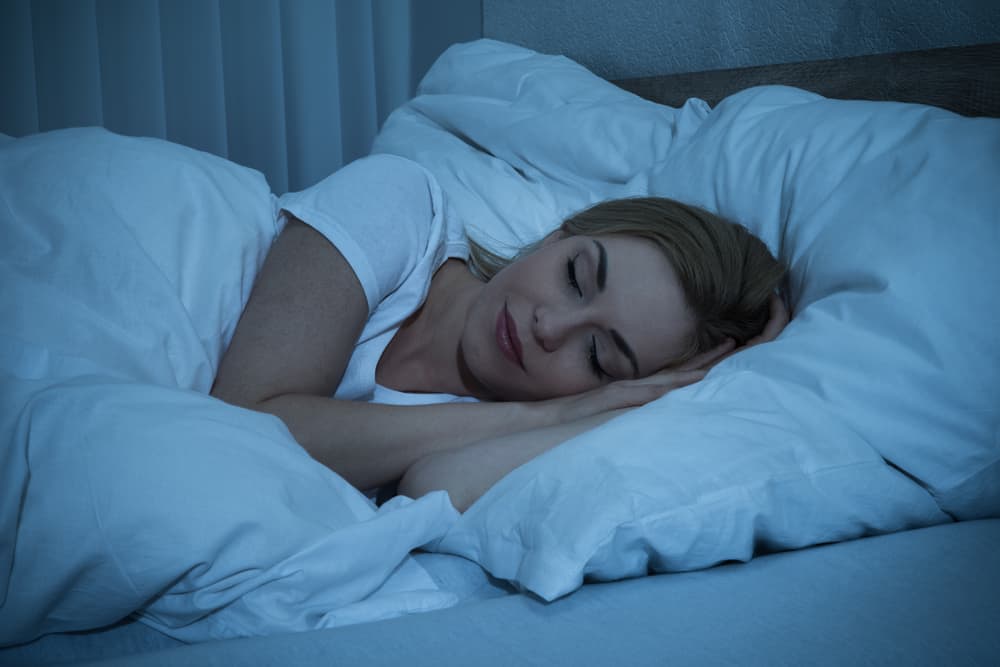In 1999, two professors at Loughborough University tested how sleep impacts the brain’s ability to respond to changing conditions. The professors developed a computer game which was set in the business world, where MBA students had to promote sales of a virtual product. Halfway through the game, the direction of the virtual marketplace was suddenly altered – the marketing strategies that normally worked no longer yielded positive sales. It appeared that only those who could easily cope with change could survive.
The test divided the students into two groups: the first group underwent restricted sleep, while the other group could sleep as much as they liked. This test resulted in two different observations: most of the students who slept well quickly adapted to the changes in the virtual marketing world and were able to maintain their sales, while those who were sleep-deprived were unable to catch up, failed to modify their marketing strategies accordingly and later on became out-of-business.
This study highlights the importance of sleep to a person’s health and wellbeing. Not getting the proper amount of sleep can really take a toll on one’s overall wellbeing and may cause chronic health problems, such as diabetes, elevated blood pressure, cardiovascular disease, increased metabolic changes, obesity and depression.
Hence, despite our busy schedules, it is essential to get the right amount of sleep, not only in order to go about our day-to-day with sufficient energy, but also to benefit our physical and mental health in the long run. A good night’s sleep is far more than a cosmetic nicety, because when we are asleep, our body recuperates by recharging its vital systems, responsible for functions such as respiration and balancing everything from circulation to growth and immune response.
Key Physical Health Benefits of Good Sleep
Sleep Helps the Body Repair Itself
When you sleep, you are allowing your brain to attend to internal issues within your body, particularly your vital systems that are responsible for proper circulation, growth and enhancing the immune system.
As you doze off, your brain signals the release of hormones that bolster tissue growth to repair damaged blood vessels. This process aid wounds to heal faster and restores sore or impaired muscles. Your body also allows the production of white blood cells that are responsible for attacking viruses and bacteria, amplifying your body’s immune response and protecting you from numerous forms of disease or infection. Sleep is also essential for repairing the damage caused by ultraviolet rays, stressors in life and other harmful exposures.
Sleep May Help Prevent Cancer
A study has shown that the rate of breast cancer for women involved who worked shifts was 30 per cent greater when compared to those who did not, and that women who had worked at least four years of the “graveyard” (overnight) shift are at highest risk of acquiring breast cancer. Likewise, shift work has been proven to greatly increase the incidence of certain cancers for men, such as prostate cancer.
It is also thought that when your room is exposed to too much light when you sleep, there is a higher possibility of reduced melatonin levels in the human body. Melatonin is the hormone that is responsible for regulating the sleep-wake cycle of a person, which also happens to play a part when it comes to protection from cancer. The rationale is that melatonin suppresses tumours from growing, disallowing cancer to occur.
Thus, it is important that you pay extra attention to the light in your bedroom. Make sure that there are no light sources that may hinder you from getting a good night’s sleep. Try to avoid using your phone or any gadget that emits blue light an hour before you go to bed, and try to refrain from putting electronics (such as a phone or laptop) near or beside your bed (in order to reduce the likelihood of sleep disturbance due to light).
Good Sleep Improves Your Immune System
When your body is not getting the right amount of sleep, our immune system suffers as a consequence. The immune system is devised to protect our body from catching illnesses such as the common cold, flu and other ailments. If your body is deprived of sleep, your immune system will not function well, making the human body more vulnerable to viruses and bacteria. Hence, having the proper amount of sleep strengthens our immune system, making it more equipped in fighting off infection and other ailments.
Sleep Problems May Increase the Risk of Cardiovascular Diseases
A study has been conducted at Wageningen University and the National Institute for Public Health and the Environment (RIVM) whereby the connection between the duration and quality of sleep and the incidence of cardiovascular disease among 20,000 people was observed. This study has shown that people who sleep for less than 6 hours and who also sleep badly are doubly unfortunate, as they have a 65 per cent greater risk of cardiovascular disease, as opposed to those people who sleep solidly for between seven and eight hours per night.
Not getting enough sleep may also be connected with unhealthy blood pressure and cholesterol levels, which are two of the key risk factors for heart disease and stroke. Hence, if you want to make sure that you are taking proper care of your heart, get seven to nine hours of sleep each night.
Sleep Affects Glucose Metabolism and Type 2 Diabetes Risk
Several studies indicate that chronic lack of sleep increases the risk of type 2 diabetes. Although researchers are still studying to understand the connection between short sleep duration and type 2 diabetes, some studies made some compelling hints as to a strong connection between sleep and metabolism, the hormones that process appetite and eating habits, and the body’s use of insulin and blood sugar.
It appears that poor sleepers are more likely to develop type 2 diabetes than those who sleep well, as a lack of sleep impairs the glucose tolerance of the body, causing a more adverse impact on the blood sugar of the body in general.
Key Mental Health Benefits of Good Sleep
Sleep Lowers the Risk of Developing Depression
Sleep deprivation or insomnia is nearly universal in mental health and psychiatric disorders, especially for those suffering from anxiety and/or depression. According to a study, around 90 per cent of patients with depression complain about not getting the sleep quality they desire, and about two thirds of the patients with major depressive episodes also suffer from insomnia.
It appears that even partial sleep deprivation has deleterious effects on our mood, whereby those who sleep for only 4.5 hours each night for one week are shown to be more stressed, sad, angry, and mentally exhausted- which are risk factors for depression and anxiety.
Sleep Reduces Stress
When your body is sleep-deficient, your cortisol levels accordingly increase – putting your body at risk of stress. Cortisol is a steroid hormone that the adrenal glands produce as a reaction to stress, which can either be good or bad.
A study conducted by the National Center for Biotechnology Information found that sleep deprivation can lead to an elevated cortisol level which makes a person feel more stressed, and can cause other ailments such as high blood pressure, headaches, and even trouble sleeping the next night, which only heightens the problem.
Studies suggest that practising mindfulness meditation helps your brain from blocking negative thoughts which is beneficial in getting a quality night of sleep. In fact, practising mindfulness meditation regularly has helped a group of 49 middle-aged and older adults who had trouble sleeping in getting improved sleeping patterns.
Sleep Helps to Improve Concentration, Learning and Productivity
If we lack sleep, we wake up tired. A study has shown that not getting proper rest and sleep can impair our ability to focus and concentrate on the tasks we have to accomplish, which will eventually result in productivity losses.
Sleep is very important for various brain functions, including concentration, cognition, performance and productivity. If our body is not well-rested, our brain may have difficulty performing some functions, hence we are more prone to committing mistakes and may experience an inability to pay proper attention or solve simple problems.
Sleep Helps Us Empathise with Others
Empathy is a person’s ability to emotionally understand what another person is experiencing. Fundamentally, it is putting yourself in someone else’s position and feeling what they must be feeling.
One study provided that if a person describes his/her quality of sleep as poor, he/she is more inclined to feel tired and not well rested, thereby reducing his/her ability to be empathetic in undesirable situations compared to other persons who are satisfied with their sleep.
When we lack sleep, the regions of our brain, particularly the limbic system involved in processing emotions and areas of the prefrontal cortex dedicated to monitoring and controlling emotional responses, do not function well – making us more socially avoidant and apathetic.
In our modern industrialised society, voluntary restriction of sleep is becoming a popular trend due to the desire of many people to become more productive to meet ever-growing work and other demands. Chronic lack of sleep or insomnia have become more prevalent nowadays, and largely contribute to increased rates of mental and physical health diseases worldwide.
If you think you or someone you know is suffering from sleep deprivation or insomnia, do not be afraid to ask for help and medical assistance. Reach out to our kind and professional team at Blissiree Pty Ltd, so you can get back to the happiest, most energetic version of yourself as soon as possible.






